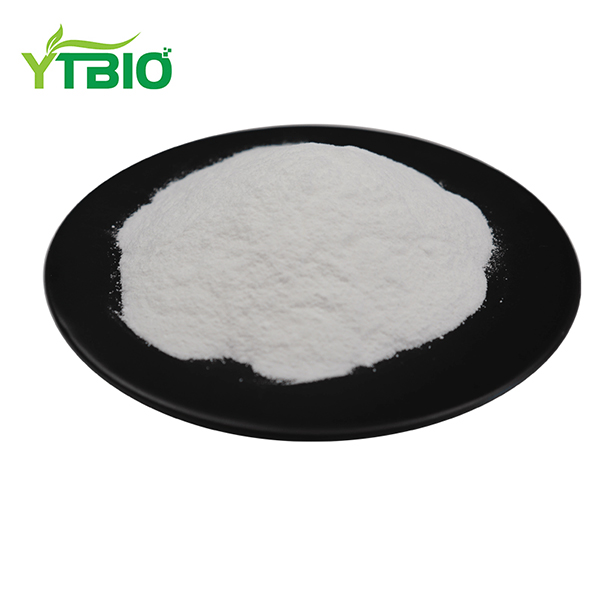Grape Skin Extract Resveratrol
Source:Grape Skin or Chemical synthesis
Specifications: Resveratrol 5%,98%
Test Method: HPLC
Sample: Available
Shelf life:24 months
Package: 1kg/ Bag 25kg/drum
Storage conditions: This product should be sealed and shaded, stored in a dry place
Certifications:cGMP,ISO22000,ISO9001,EU&NOP Organic Certificate,Kosher,BRC,Halal,FSSC22000
Shipping speed:3-5 days
- Fast Delievery
- Quality Assurance
- 24/7 Customer Service
Product Introduction
Do You Know Grape Skin Extract Resveratrol?
Grape Skin Extract Resveratrol is a natural polyphenol compound widely found in plants such as grape skins, peanuts, and Japanese knotweed. It is particularly concentrated in plants from the Vitaceae and Polygonaceae families. Grape Skin Extract Resveratrol is a stilbene derivative with antioxidant, anti-inflammatory, and lipid-regulating properties.
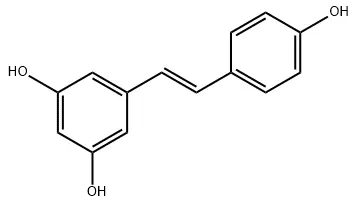
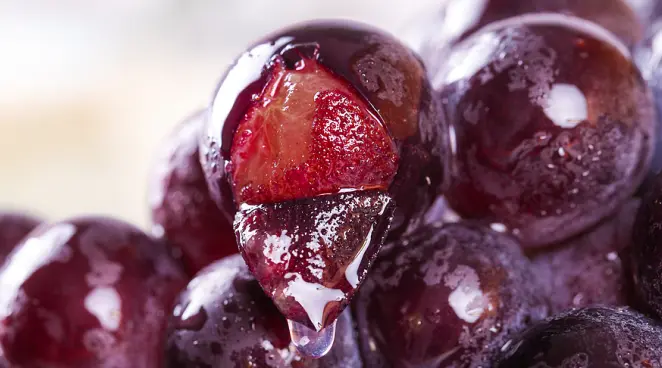
Resveratrol primarily acts as an antitoxin in plants, helping them resist external stressors such as UV rays and pathogens. Research suggests it may have protective effects on cardiovascular health, inflammation, and oxidative stress-related diseases.
Resveratrol was first isolated from the root of Veratrum grandiflorum in 1940. Currently, it has been found in at least 72 plant species across 21 families and 31 genera, including Vitis and Ampelopsis in the Vitaceae family, Arachis, Cassia, and Sophora in the Leguminosae family, and Polygonum in the Polygonaceae family.
Since the content of resveratrol in plants is very low and the extraction cost is high, the use of chemical, biological, genetic engineering and other methods to produce resveratrol has become an indispensable means.
YTBIO: Providing You With Chemically Synthesized And Extracted Resveratrol

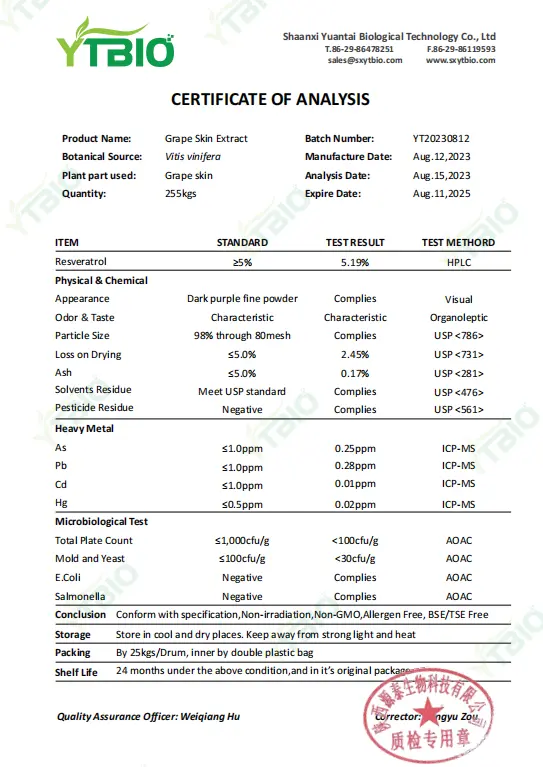
What Does Grape Skin Extract Resveratrol Do?
Antioxidant and Anti-Inflammatory
Grape Skin Extract Resveratrol reduces cell damage by scavenging free radicals and inhibiting oxidative stress. It also regulates inflammatory factors and alleviates chronic inflammatory responses.
Cardiovascular Health
Research indicates that resveratrol can improve endothelial function, promote nitric oxide release, dilate blood vessels, and lower blood pressure. It also inhibits the oxidation of low-density lipoprotein (LDL), reducing the risk of atherosclerosis.
Blood Sugar Regulator
Grape Skin Extract Resveratrol may improve insulin sensitivity and assist in blood sugar and weight control by activating the SIRT1 gene. Small clinical trials have shown some benefit in blood sugar regulation in patients with type 2 diabetes.
Anti-Aging
Experiments have shown that Grape Skin Extract Resveratrol can reduce beta-amyloid deposition and protect nerve cells. Its activation of the longevity gene SIRT1 is thought to slow the aging process.
What Are The Applications Of Grape Skin Extract Resveratrol?
Grape Skin Extract Resveratrol not only has widespread applications in health supplements but also demonstrates tremendous potential in the pharmaceutical, cosmetic, and other industries. With in-depth research and technological advancements, we believe resveratrol will play a significant role in even more areas, contributing to improved human health and quality of life.
Medical
Grape Skin Extract Resveratrol has certain benefits for cardiovascular disease, diabetes, and neuroprotection.
Skin Care
Antioxidant and Anti-Aging: Resists oxidative stress in the skin, delays skin aging, and improves skin quality.
Whitening: Inhibits tyrosinase activity, reduces melanin production, and has a whitening effect.
Health Care
Immunity Enhancement: Grape Skin Extract Resveratrol can enhance the body's resistance and prevent disease.
Anti-Aging: Scavenges free radicals, protects cells from oxidative damage, and slows the aging process.
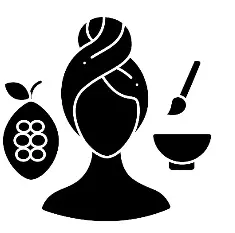


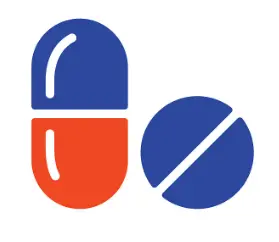
Food Additive
Antioxidant: Grape Skin Extract Resveratrol, as an antioxidant, can extend the shelf life of foods and inhibit microbial growth.
Industry
Cosmetics: As a natural preservative and antioxidant, it prevents product spoilage.
Chemical Raw Material: Used in the synthesis of dyes, coatings, etc.
Agriculture
Plant Protection: Grape Skin Extract Resveratrol can improve plant resistance to pests and diseases and enhance environmental adaptability.
Research And Controversy Regarding Grape Skin Extract Resveratrol
In nature, resveratrol is an antitoxin secreted by plants in response to UV radiation, fungal attack, or mechanical damage. When grapevines are infected with mold, peanut plants experience drought stress, or Japanese knotweed roots are gnawed by insects, their cells rapidly synthesize this compound as a defensive weapon. This natural compound has shown unexpected value in human research.
Red wine contains 0.2-5.5 mg of resveratrol per liter, while Japanese knotweed roots contain as much as 420.9 μg/g, making it a key ingredient for industrial extraction. Even peanuts and blueberries, found in everyday foods, contain trace amounts of resveratrol. Each cup of cooked peanuts provides 0.25-1.25 mg, comparable to the amount in a glass of red wine. These findings have led people to consider whether consuming these foods can provide health benefits.
In-depth research has revealed that grape skin extract resveratrol's antioxidant capacity is paramount, neutralizing free radicals and protecting cells from oxidative damage. But even more remarkable is its regulatory effect on cellular signaling pathways: In oncology research, resveratrol at a concentration of 25 micromoles/liter can induce apoptosis in lymphoma cells. This effect stems from its activation of the p53 tumor suppressor gene and its simultaneous inhibition of vascular endothelial growth factor (VEGF) expression, thereby depriving the tumor of nutrients.
A 2014 paper published in Nature revealed that resveratrol activates the PARP-1 repair enzyme system by binding to tyrosyl-tRNA synthetase (TyrRS). This mechanism can trigger a protective response in cells at doses as low as one-thousandth of those previously studied. Cardiovascular research focuses on its activation of the SIRT1 protein, known as the "longevity protein." This substance promotes the expression of endothelial nitric oxide synthase (eNOS), increasing the release of the vasodilator nitric oxide, thereby alleviating arteriosclerosis. David Sinclair's team at Harvard University observed in obese mice that those supplemented with resveratrol not only experienced extended lifespan but also significantly improved insulin sensitivity.
A 2013 study published in the Journal of the American Medical Association showed that supplementing healthy elderly individuals with 500 mg of resveratrol daily for one year did not show any significant improvement in metabolic markers. Even more puzzling, some studies even suggest that high doses of resveratrol may increase cancer risk—a finding that contradicts its anti-cancer activity at lower doses. This "double-edged sword" effect may be due to its dose-dependent nature: in plants, grape skin extract resveratrol acts as a stress molecule, activating protective mechanisms at low concentrations while potentially inducing apoptosis at higher concentrations. This property is beneficial in fighting cancer cells, but excessive intake can have the opposite effect on healthy cells.
Grape Skin Extract Resveratrol Intake
Resveratrol is primarily found in grapes, red wine, the skins and seeds of berries, and peanut skins. Moderate red wine consumption is a common way to consume it, but it's important to note that excessive alcohol consumption can be harmful, so consumption should be controlled. Fresh berries like grapes, blueberries, and strawberries, as well as peanuts in moderation, are also good ways to consume resveratrol.

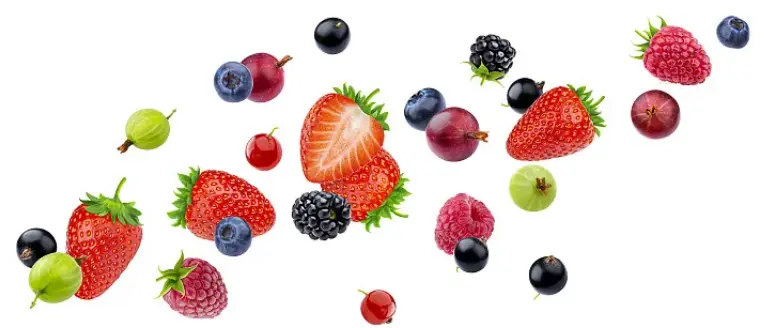
Dietary Supplements: If dietary intake of resveratrol isn't enough to meet your body's needs, you can take a resveratrol supplement. However, when choosing a supplement, be sure to choose one from a reputable manufacturer and follow the instructions or a doctor's advice.
Resveratrol can enhance its effects when combined with antioxidants such as vitamin C and vitamin E. Consume more natural sources (such as red grapes and berries) daily.
Safety Of Grape Skin Extract Resveratrol
Resveratrol is generally considered safe, but some side effects may occur at high doses. Common side effects include gastrointestinal discomfort, nausea, and vomiting. Furthermore, resveratrol may interact with certain medications, so it's best to use it under a doctor's supervision while taking medication.
Summary
Grape skin extract resveratrol has become a highly sought-after product in the health field due to its diverse health benefits, broad application prospects, and relatively high safety profile. However, despite its numerous potential health benefits, resveratrol suffers from low bioavailability, limited oral absorption, and the potential for adverse reactions with excessive intake. Therefore, when using grape skin extract resveratrol, appropriate methods of administration should be chosen based on individual needs and under the guidance of a qualified healthcare professional.
YTBIO has own factory and R&D team, dedicated to providing you with high-quality Grape skin extract resveratrol and services. If you have any questions or needs, please contact us and we will respond to you as soon as possible.
_1737093401309.png)
